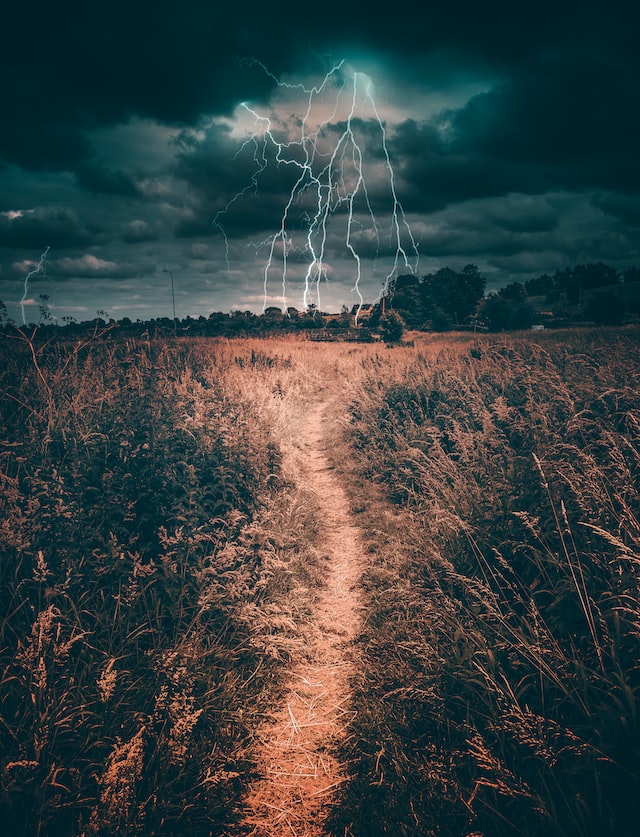What's the Difference Between 'Lightening' and 'Lightning'?
In this blog post we look at when to use lightening and when to use lightning.
'Lightening' or 'Lightning'?
"Lightening" and "lightning" are two words that are often confused, but have distinct meanings and connotations.
"Lightening" is the present participle form of the verb "to lighten" which means to make something less heavy or less dark, or to make something less intense or less severe.
For example, "the sky is lightening" means the sky is becoming lighter or less dark, or "the storm is lightening" means the storm is becoming less severe.
"Lightning," on the other hand, is a noun that refers to the natural phenomenon of electrical discharge in the atmosphere, which is usually accompanied by thunder.
It is often associated with storms and is used to describe the sudden, bright flashes of light that occur in the sky.
In terms of usage, "lightening" is considered a less common word and is mostly used in describing changes in the color of the sky or changes in the intensity of a storm.
It's important to note that "lightening" and "lightning" have different meanings and should not be used interchangeably.
In conclusion, "lightening" is the present participle of the verb "to lighten" which means to make something less heavy or less dark, or to make something less intense or less severe.
"Lightning" is a noun that refers to the natural phenomenon of electrical discharge in the atmosphere, which is usually accompanied by thunder, it's more common and used more frequently to describe the natural phenomenon of electrical discharge in the atmosphere.
Here are some examples of the words “lightening” and “lightening” used in context:
-
"The clouds are lightening in color" - "lightening" is used here as the present participle of the verb "to lighten," meaning that the color of the clouds is becoming lighter.
-
"The thunder is getting louder as the lightning strikes" - "lightning" is used here as a noun, meaning the natural phenomenon of electrical discharge in the atmosphere.
-
"The curtains are lightening the room" - "lightening" is used here as the present participle form of the verb "to lighten," meaning that the curtains are making the room brighter.
-
"The curtains are lightening the room" - "lightening" is used here as the present participle form of the verb "to lighten," meaning that the curtains are making the room brighter.
-
"The lightning bolt illuminated the dark sky" - "lightning" is used here as a noun, meaning the natural phenomenon.
-
"The storm is getting more intense as the lightning strikes increase" - "lightning" is used here as a noun, meaning the natural phenomenon.
Examples of Lightening in a Sentence
"The lightening of the load on his back made it easier for him to carry." "The lightening of the sky signaled the end of the storm." "She applied a lightening cream to her skin to brighten her complexion." "The lightening of his mood was evident as he laughed and joked with his friends." "The lightening of the load on the truck allowed it to travel faster." "The process of lightening the wood involved removing some of the darker stains." "The lightening of the load on the airplane allowed for a smoother takeoff." "She used a lightening shampoo to brighten her blonde hair." "The lightening of the sentence was a welcome surprise for the convicted criminal." "The lightening of the clouds signaled the end of the rain."
Examples of Lightning in a Sentence
"Lightning flashed across the sky, illuminating the darkness." "The storm brought with it lightning that lit up the night sky." "The lightning strike hit the tree, causing it to split in half." "Lightning danced across the horizon, signaling an approaching storm." "The lightning bolt hit the power line, causing a power outage." "The lightning was so bright it woke me up from my sleep." "The lightning strike caused a small fire in the forest." "Lightning illuminated the sky, casting an eerie glow on the landscape." "The lightning storm was so severe it caused extensive damage to the area." "The lightning was so frequent that it seemed like the storm would never end."

